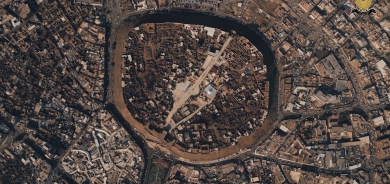American Firms Line Up for Kurdistan, as Erbil Mulls US Ties

ERBIL, Kurdistan Region - Roll in the American brands! A US delegation for franchise businesses will be visiting the Kurdistan Region of Iraq soon, to see if after Pizza Hut, Cinnabon/Carvel Ice Cream and Ace Hardware others can also find a foothold in this secure region of Iraq.
The American Consul General Joseph Pennington gave the news at a reception of the United States-Kurdistan Business Council (USKBC) at the Rotana Hotel in the Kurdistan capital of Erbil. Whether hamburger giant MacDonald’s is amongst the interested visitors, he could not say. But Marriot and Hyatt Hotels are already setting up shop in Kurdistan.
The consul general was one of the speakers at the reception, organized to connect American businesses working in Iraqi Kurdistan to those officials and others who can help them move along. The USKBC is a trade-organization with some 20 members, set up two years ago to improve trade and commerce between the US and Iraqi Kurdistan.
“The story is getting out about the opportunities here,” said David Michael Tafuri of the USKBC. “The region is going to be wealthy. American products are greatly liked, and many Kurds want more of them and can now afford that.”
In contrast with the major role the Americans played in freeing the Kurds in 2003 from the regime of Saddam Hussein, on the business front they have been overtaken by Turks and Lebanese, and even by Britain, the declared partner of choice of the Kurdistan Regional Government (KRG).
“I don’t really know what that means,” said Pennington when reminded of the British status. About the fact that Turkey is the biggest investor in Kurdistan, and Lebanon one of the most active in the business sector, he said: “We cannot compete with neighboring countries. But we have other advantages. We offer quality, design and technology.”
American companies in Kurdistan are mainly active in oil and gas, security and building. Pennington expects these activities to broaden in the future. “There is a lot of interest in the States for doing business here. But as it is Iraq, security plays a role and companies are cautious. Of course, here are fewer attacks than elsewhere in Iraq, but there still are threats.”
The reception was held at a moment of diplomatic tension between the US and Kurdistan, with Kurdish President Massoud Barzani cancelling a visit to the White House over the fact that Kurdistan’s two main political parties – the Kurdistan Democratic Party and Patriotic Union of Kurdistan -- still feature on a terrorism blacklist from the days they resisted Saddam Hussein’s regime.
Kurdish politicians have shown frustration over the lack of support from Washington in their conflict with Baghdad over oil revenues, which has recently led to Baghdad withholding Kurdistan’s constitutional part of the national budget.
Although none of the diplomats at the reception wanted to comment on this hot issue, Qubad Talabani, the KRG Minister for Coordination and Follow Up, voiced some frustration. Until a year-and-a-half ago he was the KRG representative in Washington, where he set up the business council.
“I’d like the United States to see us as an asset, but they still see us through the Iraqi lens,” he said when asked for his dearest wish for the relations with the US. “What we do here has implications in Turkey, in Syria and on the oil markets. Our relationship should reflect that.”
Talabani said he was saddened by the fact that over a year after his departure from the US, his former position still is not filled. The vacuum this has caused is seen as one of the reasons for the decline in the quality of relations between the US and the Kurds.
“The vacancy should not be seen as an indication of how much importance we give to the US-Kurdistan relations,” he protested. He stressed it is a matter of “internal Kurdish relations,” thus indicating the problem is part of the conflicts inside PUK and with the KDP that are hampering formation of a new cabinet.
“There were two candidates for the position, but the procedure has been taken over by other events. It will definitely be addressed in the eighth cabinet,” Talabani said.
He showed disappointment that the issue of the blacklist has not been solved, pointing out that nobody in Kurdistan knew that it existed. “It is not even a physical list. The former South African president Nelson Mandela was on it, too. They managed to remove him some time before he died.”
Talabani stressed that the US administration “agrees that we should not be on it.” Yet, the procedure to get off the list leads through the American Congress and needs legislation to be amended or newly inserted. “We have fallen into the game of politics, and that has little to do with what’s going on between KDP and PUK.”
Rudaw














